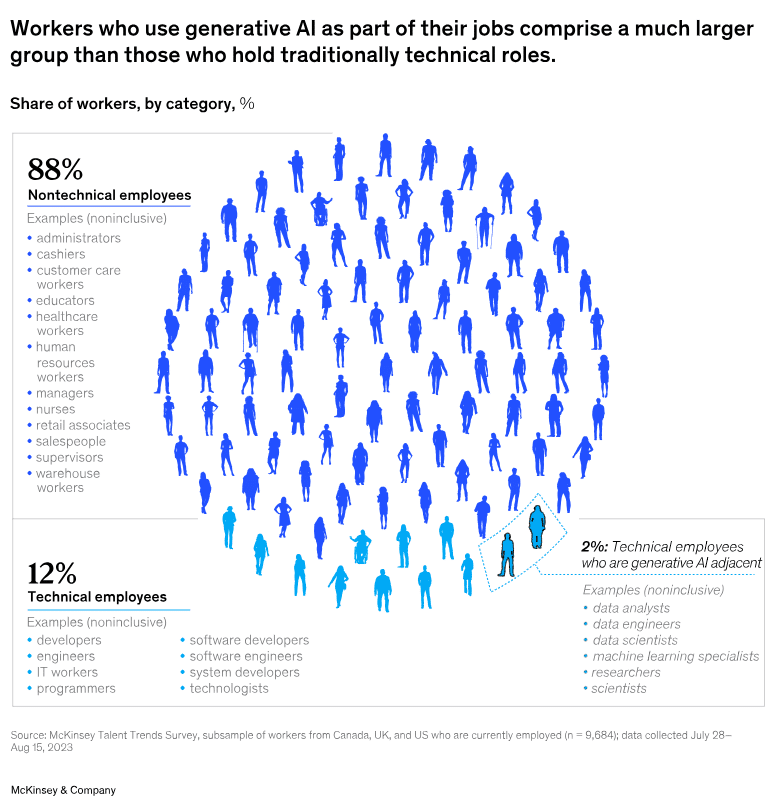Over the past few decades, we’ve witnessed a series of digital and data-driven transformations that have redefined how consumers shop, retailers operate, and marketers connect with their audiences. Today, we are on the verge of another profound evolution: the rise and widespread adoption of generative AI (Gen-AI).
Generative AI in retail unlocks valuable opportunities across the entire value chain, from dynamically optimizing product assortments and store layouts to delivering unparalleled levels of personalization in customer experiences. According to McKinsey, retail and consumer packaged goods organizations can expect a 1.2 to 2 percent increase in productivity by leveraging generative AI, resulting in an estimated value of $400 to $660 billion.
How generative AI is changing the future of work?
Generative AI is already reshaping industries by enhancing human capabilities and productivity. But its impact goes beyond just boosting efficiency; it prompts a comprehensive rethinking of the nature of work, the roles within the workforce, and the societal frameworks that support them.
This innovation benefits both technical and non-technical employees, with far-reaching implications across various roles and functions. The integration of generative AI will see the evolution of roles for Product Designers, Merchandisers, Supply Planners, Store Associates, Store Managers, Marketers, Customer Service Agents, and Logistics Managers in e-commerce are just some of the professionals who will see their roles evolve through the integration of generative AI.
According to McKinsey, as workers increasingly leverage generative AI for repetitive tasks, the importance of human-centric skills like critical thinking and decision-making will only grow.
Here’s a look at the distribution of workers by category and percentage, illustrating the shift in skills and tasks driven by AI advancements.

In the following sections of the blog, we will delve into how generative AI is poised to transform the key moments in the work life of prominent roles within the retail sector. These include Product Designers, Merchandisers, Supply Planners, Store Associates, Store Managers, Marketers, Customer Service Agents, and Logistics Managers, we will uncover how this technology enhances their day-to-day operations.
From streamlining product design and optimizing inventory to personalizing customer interactions and improving logistical efficiency, Gen-AI is set to redefine how these professionals approach their tasks.











